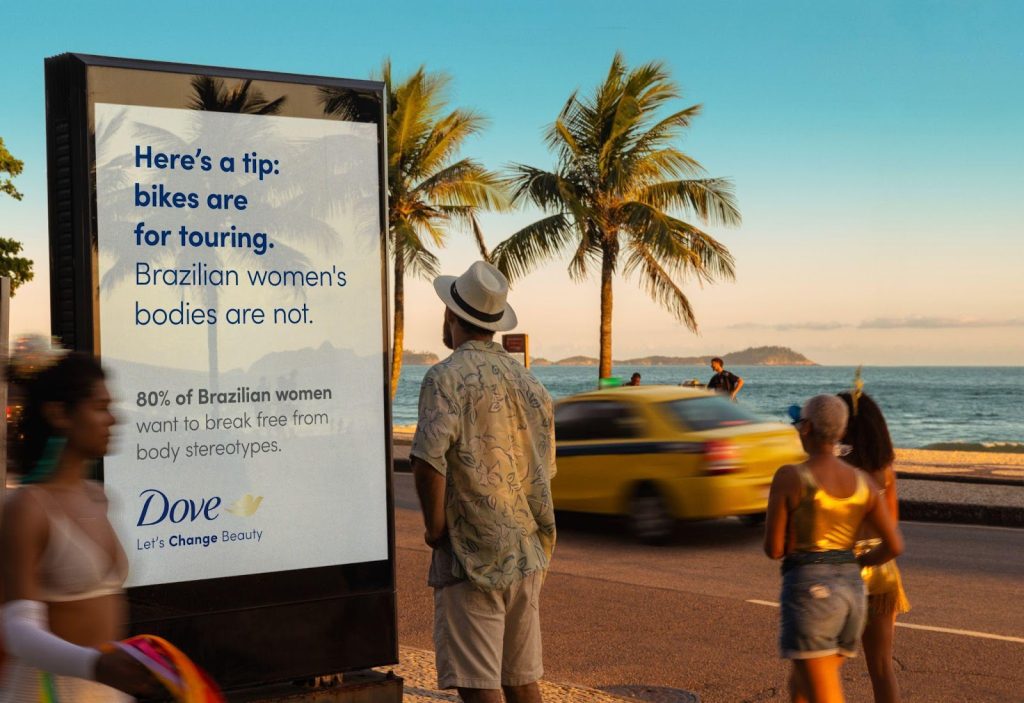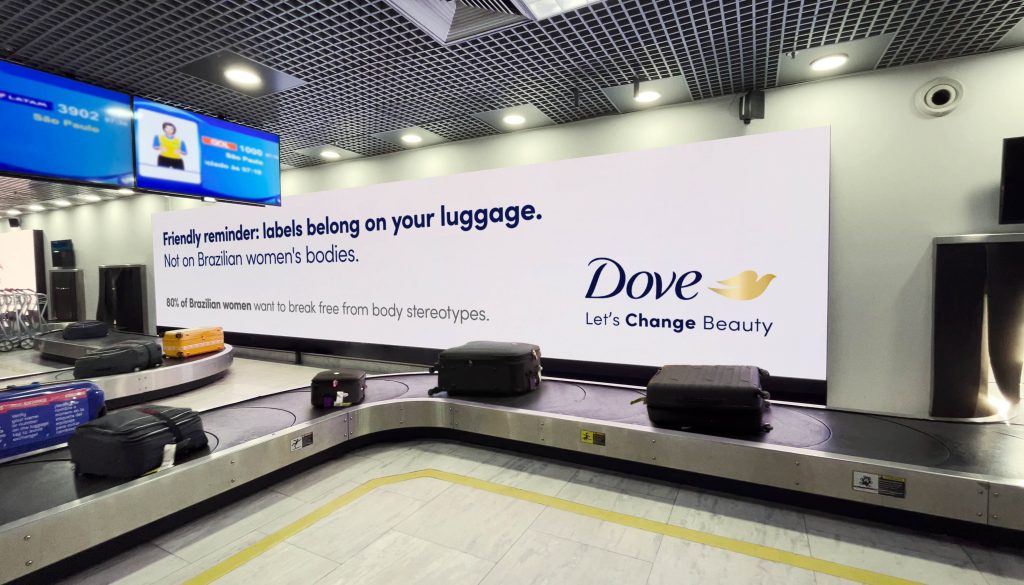The initiative brings messages in several foreign languages to the streets, aiming to combat the objectification of the female body by visitors

According to a groundbreaking survey by Dove, 80% of Brazilian women reveal feeling uncomfortable and disrespected by stereotypes about their bodies perpetuated by people worldwide. In support of combating this reality, the brand presents the campaign #RealBrazilianWomen, which questions the image of Brazilian women, constantly sexualized and reduced to their appearance, especially by foreign tourists. The campaign aims to broaden the debate, raise awareness, and spark reflection on the topic within and outside the country, especially in the summer, when the female body is most prominent. The campaign begins during Carnival, starting Saturday 10th until Wednesday 14th, strategically chosen by the brand as the season when Brazil receives the most tourists, and takes to the streets to alert foreign revelers visiting the country about how certain behaviors and statements contribute to the construction and reinforcement of this stereotype.
Created by Soko, Dove’s creative agency in Brazil, the initiative makes questions and provocations related to the topic take space on billboards, airports and strategic points in the city of Rio de Janeiro in different languages, such as Spanish and English, facilitating understanding for tourists from around the world, as well as content on Dove’s social media.
“The data perceived in the survey points to an alarming scenario that directly aligns with everything Dove has been building for decades. It is known that the stereotype of the Brazilian body is one considered ‘standard,’ and that this, in addition to affecting our self-esteem, results in the hyper-sexualization of Brazilian women worldwide. Our goal with the campaign is to propose a provocation for reflection on this objectification, especially in the summer and Carnival, as it is a time when women’s bodies are most exposed to societal pressures. This is how Dove seeks to contribute to the construction of a world where beauty ceases to be a source of anxiety and becomes an endless source of happiness and confidence,” says Andreza Graner, Marketing Director of Dove in Brazil.
“In Brazil, Carnival is a moment when the world is looking at women, so we decided to use the strength of our brand to propose a bold campaign that questions the behavior that oppresses the women’s bodies in our country. Once again, Dove reinforces its brand purpose, to repopulate imagination about beauty and continue contributing to the transformation of the social structures that shape our culture,” adds Marianna Ferraz, Marketing Manager of Dove.

Facing the stereotype that “the Brazilian woman has a body considered standard,” the survey also points out data among Brazilian women who usually wear bikinis when frequenting beaches, pools, and water-related places:
- 80% agree that “this image of the Brazilian woman needs to end; Brazilian women are much more diverse than that.”
- 82% agree that “this image does not represent the various types of bodies of Brazilian women and the various types of bikinis they wear.”
- 61% agree that “this image of the Brazilian woman imposes a standard of beauty that is unrealistic for me; it does not correspond to my body type.”
- 57% “feel uncomfortable with what this image of the Brazilian woman conveys about them.”
- 57% believe that the stereotype that “the Brazilian woman has a body considered standard, and wears small bikini types like thongs and curtains” is stronger abroad than in Brazil.
“We have significant data that 80% of Brazilian women wish to break free from the stereotype that reduces us to a limited vision—and when we talk about the objectification of our bodies, we also talk about self-esteem. Dove directing the main message of its campaign to those who replicate this view is a way to question the root of the issue without blaming women for a problem they are not responsible for,” says Andy Dutra, Creative Leader at SOKO.
Dove has been active for almost 20 years in developing campaigns that promote body confidence and self-esteem in girls and women. The new campaign adds a chapter to the brand’s legacy in Brazil’s summer, which has already been built through previous initiatives such as “A Seat in the Sun” in 2023, which created a new prototype of beach chair to bring a unique experience for people with bigger bodies, with the aim of making the beach a more democratic place for all bodies. With significant impact for its target audience and within the beauty care market, the campaign had its creative and social transformation recognized in numerous national and international awards over the past year, such as Cannes Lions, TikTok Awards and Effie Awards Brasil.
Source: Soko

You must be logged in to post a comment Login